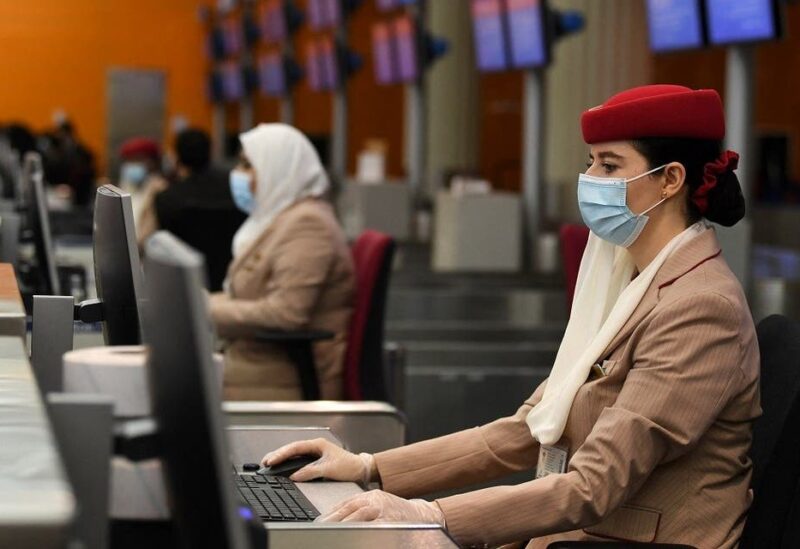
As the COVID-19 outbreak continues to upend global travel industries, a new report has highlighted the impact it has on the United Arab Emirate’s tourism sector – and how well the country is positioned to bounce back post-pandemic.
Unprecedented global travel bans, and stay-at-home orders triggered a severe disruption in the global economy with tourism coming to a standstill in March 2020, with international travel bans affecting more than 90 percent of the world’s population and widespread limitations on public meetings and community mobility.
A new report, ‘Impact of pandemic coronavirus disease (COVID-19) on the United Arab Emirates tourism industry’, published in the Palarch’s Journal of Archaeology Of Egypt/Egyptology, found that widespread travel bans had a profound effect on travel and tourism industry sectors, including airlines, transportation, cruise lines, hotels, restaurants, tourist attractions, travel agencies, tour operators, and online travel organizations.
Study author Dr Amer al-Qasem noted that global flight bookings fell from 3.234 million in January 2020 to less than 500,000 in July of the same year.
In the UAE alone, the emirates experienced a massive drop of 21 thousand departure flights in the same timeframe.
In line with the fall in global numbers of scheduled departure flights, the UAE experienced its most notable drop on June 1, 2020, when the number decreased 82 percent compared to the flights on the same day of the year 2019.
Having a noticeably lower number of booked flights, airlines in the UAE reduced operational requirements, demanding a reduced workforce.
As a result, many tourism industry workers lost their jobs. For instance, Dubai carrier Emirates had 60,000 staff before the pandemic, with cost-cutting measures following the outbreak resulting in workforce cuts. The report claims an estimated 15,000 aviation crew members of Emirates are now unemployed.
The UAE hotel industry also struggled.
The report found that in Dubai alone, in 2020 the average daily rate (ADR) decreased by 20.4 percent, revenue per available room (RevPAR), fell by 42.9 percent, and occupancy dropped by 28.2 percent when compared to 2019 figures.
This, noted al-Qasem, led to a significant decline of the country’s economy, with the GDP of the UAE falling from $421.14 billion in 2019 to $353.9 billion in 2020.
However the report noted that the UAE is well-positioned to make a post-pandemic boom thanks to country-wide initiatives.
“In the aspect of the economic catastrophe caused by the COVID-19 health pandemic, a wide range of initiatives have been undertaken, complemented by the UAE’s tourism and hospitality industry’s specific actions,” said al-Qasem. “As part of the UAE Nation Brand, they started a new unified tourism identity that enticed travelers by utilizing the diverse areas of interest the country has to offer. This initiative aims to brand UAE as a single destination with a great variety of ideal experiences locally and globally while showcasing their inspiring story across the world.”
Also, said al-Qasem, the UAE Cabinet approved the establishment of the Emirates Tourism Council to improve the sector nationwide. The council has a broad remit with duties including: control of suggesting and revising tourism-related policies and laws; developing growth plans and supporting the different stakeholders involved in the industry; attracting investment; suggesting economic incentives to encourage the growth of the sector; establishing a comprehensive national tourism information database, and supporting small and medium-sized enterprises (SME) involved in the tourism sector.
Airlines too have bolstered efforts to incentivize international travel, noted al-Qasem. Emirates became the first airline in the industry to provide free COVID-19 insurance coverage to its travelers and implemented enhanced biosafety measures to limit the spread of the virus.
As a result, al-Qasem said the UAE’s tourism sector is ripe for recovery for both international visitors, and an increased appetite among local residents for ‘workcations’ and ‘staycations’.
“This unprecedented public health emergency has now turned into a devastating economic crisis for the entire world, including the tourism and hospitality industry,” he said. “The recovery must gradually take place in tandem with other sectors’ recovery to combat the outbreak and restore economic efficiency.
“So, the proposed interventions introduce in response to changing circumstances. As a result, ensuring visitors’ and employees’ well-being has become a top priority for stakeholders’ tourism and hospitality industry. Simultaneously, to recoup business losses and re-establish a positive reputation, substantial publicity and promotional campaigns should launch locally and globally.”
“Another strategic approach for attracting potential clients will be to promote flexible services. Providing flexible rates, cancellation policies, and a relaxed work environment would help ensure the tourism and hospitality industry’s long-term viability.”
Earlier this month, Dubai Tourism Chief Executive Issam Kazim said Dubai expects to attract over 5.5 million overseas visitors this year, and is hopeful that new markets can help make up for the loss of visitors from key places where travel is restricted.
Dubai had 5.5 million overseas visitors last year, when the tourism sector was pummeled by the coronavirus pandemic. In 2019, 16.7 million tourists visited.
However, Kazim said visitor numbers from newer markets in Europe, Africa and the Commonwealth of Independent States (CIS) were performing well.
The Emirate reopened its borders to international visitors last July and was a popular holiday spot, with many other global destinations remaining shut.
But the influx of foreign tourists coincided with a second wave of coronavirus infections across the UAE and led Dubai to tighten capacity restrictions on hotels and restaurants.
Many of those restrictions were eased earlier this month.
Regional business and tourism hub Dubai is also relying on the global fair Expo 2020, which had been postponed for a year due to the coronavirus pandemic, to give its economy a boost.